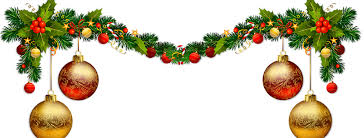
There was not a huge crowd for this year's Seasonal Readings, and only 4 of the 7 participants had anything literary to share, but it is quality rather than quantity that matters, and this year's contributions were quite different from those proposed in the past. They were much appreciated by those present, to such an extent that I am sharing several entire citations with all the members of the Book Group, as well as anyone else who chooses to read them on the AWG-LR website. Perhaps they will add a bit to everyone's holiday season.
Since Anne was our hostess, and had just celebrated a “big” birthday, we invited her to start the readings. This year, rather than reading from The Frozen Thames (by Helen Humphreys) she read a poem by Dorothy Parker, an American who she said is noted for her "hate poetry about husbands." Although Anne said that "every English person knows her," only 2 of the 5 Americans present said they do. The poem Anne chose is "Christmas, 1921," which has nothing to do with hate.
I do not ask you for presents rare,
Other-world trove of forgotten metals;
Orchids that opened to jungle air,
Tropical hate in their writhing petals;
Onyx and ebony, black as pain,
Carved with patience beyond believing;
Perfumes, to harry the startled brain;
Laces that women have died in weaving;
Cool-tinted pearls from the ocean, where
Grottoes of dolorous green regret them.
I do not ask you for presents rare-
Dearest, I know that I wouldn't get them.
Give me your love, on this Christmas Day.
Give me your thoughts, when the chimes are ringing.
Send me the happier along my way,
Deep in my soul let your words be singing.
Give me your wishes, as bells sound clear,
Charming the air with their golden measure.
Give me your hopes for the unborn year,
Fill up my heart with a secret treasure.
Give me the things that you long to say,
All of your tenderest dreams unfetter.
Give me your love, on this Christmas Day-
But come across, please, when times get better.
The next contribution was a few verses from The Way of the Bodhisattva, written by an 8th century Buddhist monk, Shantideva, who was born and grew up in India. The book was one of the first books translated into Tibetan. One of the verses was:
"All the joy the world contains
Has come through wishing happiness for others.
All the misery the world contains
Has come through wanting pleasure for oneself."
Then followed what is said to be the Dalai Lama's favorite verse:
"And now as long as space endures,
As long as there are beings to be found,
May I continue likewise to remain
To drive away the sorrows of the world."
(ed.- The Dalai Lama recited these lines at his Nobel Peace Prize acceptance speech in 1989, saying that they give him inspiration and determination.)
Someone asked for an explanation of the term Bodhisattva, and we were enlightened on hearing that it is someone who takes on the sufferings of others. Somewhere out there is a Bodhisattva looking out for each one of us. Several participants suggested that perhaps a guided visit of the temple at Lerab Ling (near Lodève) could be arranged for members of AWG-LR.
The next selection was "The Oxen," by Thomas Hardy.
Christmas Eve, and twelve of the clock.
"Now they are all on their knees,"
An elder said as we sat in a flock
By the embers in hearthside ease.
We pictured the meek mild creatures where
They dwelt in their strawy pen,
Nor did it occur to one of us there
To doubt they were kneeling then.
So fair a fancy few would weave
In these years! Yet, I feel,
If someone said on Christmas Eve,
"Come; see the oxen kneel,
"In the lonely barton by yonder coomb
Our childhood used to know,"
I should go with him in the gloom,
Hoping it might be so.
Although we are all familiar with Thomas Hardy, very few admitted to knowing about kneeling oxen, and even fewer said they had ever gone outside at midnight on Christmas Eve to see if the animals were kneeling. We liked the language, but wondered about bartons and coombs. (ed.- According to the internet, a barton is a farm building, and a coomb is a little valley.)
Then there was a text in French from the book Noël - Christmas in France, which was written in simple French for anglophones, to help celebrate the holiday season French style. Fortunately all present are fluent. The chapter chosen was Noëls de Jadis. Charlemagne was proclaimed emperor on Christmas Day in the year 800. In 1223 St. Francis of Assisi constructed the first "crèche" (nativity scene). The first Christmas tree in France was presented to the city of Strasbourg in 1605. On December 25, 1792, Louis XVI wrote his last testament, pardoning those who were about to chop off his head. At Christmas in 1800, Tallyrand noted a recipe for the Christmas goose which included bardes de lard, tranches de jambon, oignons piqués de clous de girofles, une gousse d'ail, un peu de thym et de laurier, de muscade, quelques gouttes d'orange amère, le foie de l'oie, de crêtes de coq, et assez de sauterne pour arroser généreusement. (ed.- I thought of adding some cocks' combs to the stuffing for my own Christmas goose, but when I asked at the supermarket, I was told I'd have to buy the entire beast in order to get the "crête.") In 1867, Napoleon III had the first Parisian Christmas tree planted at Les Tuileries.
We had come full circle, and Anne read another piece that she had chosen, this time the poem "Christmas," by John Betjeman. (I'm citing only a few of the verses.)
The bells of waiting Advent ring,
The Tortoise stove is lit again
And lamp-oil light across the night
Has caught the streaks of winter rain
In many a stained-glass window sheen
From Crimson Lake to Hookers Green.
..... ..... .....
And London shops on Christmas Eve
Are strung with silver bells and flowers
As hurrying clerks the City leave
To pigeon-haunted classic towers,
And marbled clouds go scudding by
The many-steepled London sky.
..... ..... .....
And is it true? And is it true,
This most tremendous tale of all,
Seen in a stained-glass window's hue,
A Baby in an ox's stall ?
The Maker of the stars and sea
Become a Child on earth for me ?
And is it true ? For if it is,
No loving fingers tying strings
Around those tissued fripperies,
The sweet and silly Christmas things,
Bath salts and inexpensive scent
And hideous tie so kindly meant,
No love that in a family dwells,
No carolling in frosty air,
Nor all the steeple-shaking bells
Can with this single Truth compare -
That God was man in Palestine
And lives today in Bread and Wine.
Someone mentioned having heard John Betjeman read his own poem (on YouTube), and felt that Anne gave a much better rendition.
Someone else said that her sister is watching a PBS series on US television about the spread of Christianity from Palestine, which was not first to the east and then back northwest to Europe, but was first across North Africa and then up into Spain.
As usual, after the readings we enjoyed sandwiches made by Anne, and goodies for those of us with a sweet tooth, brought by some of the other participants. Anne opened the birthday gifts that had been sent or given to her, even by members who were not present for the meeting, and we once again thanked her for opening her home to us for the Seasonal Readings.

